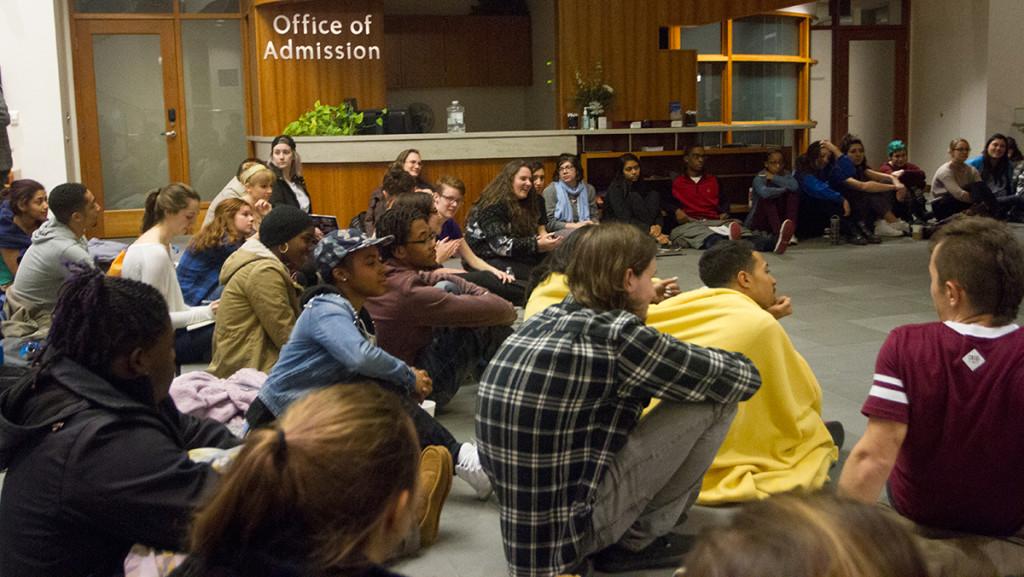Members of the student protest group POC at IC continue their occupation of Peggy Ryan Williams Center Dec. 9. As of 6 p.m., around 30 members and supporters of POC at IC sit in the lobby and second floor of PRW.
The number of occupants fluctuated throughout the day, but more students seemed to be in the building during the evening teach in and discussion sessions. Around 85 students came to yesterday’s session.
Tuesday night, Belisa Gonzalez, director of the Center for the Study of Culture, Race and Ethnicity, facilitated a teach-in on the topic of “Allyship vs. Saviorship.” When the discussion began at 8 p.m., there were about 70 students sitting in a circle near the first floor front desk of PRW. As the nearly hour and half discussion went on, the number of students entering the building increased.
Gonzalez began the discussion by asking students to provide their own definition of allyship. As allyship and saviorship are intertwined topics, the discussion shifted into students expressing their frustration at peers that seem to overstep their grounds while attempting to be an ally.
Several students brought up their personal experiences where they felt attacked or targeted by another student that attempted to be an ally.
The topic then shifted from how students work with other students to how students discuss this movement with their families, such as struggles they had with discussing the protests at their Thanksgiving dinner table. A few students seemed on the brink of tears while telling personal anecdotes of hardships they face at home with their families as a result of friction cause by their activism.
This then shifted the conversation to the concept behind identity. Students from the African, Latino, Asian and Native American and lesbian, gay, bisexual and transgender communities spoke about how they have also struggled being apart of the LGBT community as well as a person of color and feeling as if they carry double or triple the weight as a result.
Over the course of the teach-in, members of POC at IC brought up a slightly different idea: that they themselves are also responsible of participating in ‘saviorship.’ Much of the second half of the discussion was dedicated to discussing how many forms of oppression exist, such as misogyny and others they could be unaware of. Toward the end of the teach-in, members discussed how the racism they face is one in the same with different struggles felt by others and that the struggles of others should not be overlooked nor ignored in pursuit of ending theirs.








